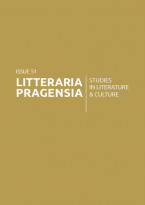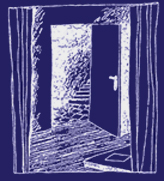
|
26.51 Travel WritingEdited by: Christoph Bode and Katharina Pink Volume: 26 Issue: 51 July 2016 |
Contents
|
Christoph Bode
,
Katharina Pink
Introduction: Travel Writing
|
1 |
|
Felicitas Meifert-Menhard
Travelling Towards Knowledge: Romantic Journeys and the Advance of Science
show abstract
This essay traces the connections between travelling and the development of a scientific agenda in Romantic poetry, using the example of Byron's Childe Harold's Pilgrimage (1812-1818). Starting from the assumption that there is an enticing correlation between the interest in science that Romantic poets held and the epistemological advancement made possible by developing travel in the period, this article seeks to examine interconnections between the act of travelling as rendered in Childe Harold's Pilgrimage and the gathering of a distinctively scientific form of knowledge. In Canto II of the Pilgrimage, Byron records his journey to Albania and takes on a proto-anthropological pose to describe the cultural manners and festivities at the court of Ali Pasha. The essay closes with a brief comparison between Byron's poem and the narrative account of the journey to Albania as provided in John Cam Hobhouse's Journey through Albania and Other Provinces of Turkey in Europe and Asia (1817), a text that displays a more openly sociological agenda which counters Byron's anthropological interest.
|
6 |
|
Anke Fischer-Kattner
A Traveller Gone Native? Constructions of Self and Others in James Bruce's Travels to Discover the Source of the Nile
show abstract
Publishing a multi-volume travelogue in 1790, the Scottish traveller James Bruce was trying to assert himself as the ultimate authority on the Northeast-African empire of Abyssinia (Ethiopia). Yet, he failed to convince his critics that his account of a three-year journey including a visit to the famous sources of the (Blue) Nile was founded on true experience. Bruce encountered difficulties that would persist in the establishment of modern ethnography: how could a written account convey the authority of having been in the field without appearing to have adapted too much to the other culture? Although succeeding travels to the region supported Bruce's stories, the shadow of doubt remained, even up to modern biographies. This article argues that the continuing reservations Bruce faced were caused by his narrative constitution of self and others
|
17 |
|
Stefanie Fricke
Renegades Between Christian 'Self' and Muslim 'Other': The Captivity Narratives of Joseph Pitts and Thomas Pellow
show abstract
This essay discusses two eighteenth-century captivity narratives set in North Africa and written by Englishmen who converted to Islam. After an introduction to the historical and literary background of so-called captivity narratives, the essay looks at both accounts in detail, analysing how the authors try to distance themselves from their adopted, Muslim society but ultimately fail to establish a stable dichotomy between East and West.
|
36 |
|
Sabrina Kessler
Welcome to the New World: Keeping Up Appearances in Miles Philips's Slave Narrative
show abstract
This article focuses on the slave narrative of the sixteenth-century traveller Miles Philips who was captured and enslaved by Spanish colonists in New Spain after being set on the Mexican shore by the English slave trader John Hawkins in 1568. The essay offers a close reading of the travelogue tracing the discursive constructions of identity and alterity, which are informed by Philips's precarious status as an English slave and captive in the former Spanish colonies of the New World
|
52 |
|
Katharina Pink
Projecting the Self, Merging with the Other: T.E. Lawrence's Seven Pillars of Wisdom
show abstract
While the question of the traveller's identity during the encounter of otherness naturally lies at the heart of any travelogue, it is rarely as essential as in Seven Pillars of Wisdom (1935), the war and travel account of the famous "Lawrence of Arabia." This article aims to describe how Lawrence constructs and functionalizes alterity for his discursive self-fashioning: by turning it into a projection surface on which he can capture his elusive self until ultimately identifying and merging with the other to such a degree that reciprocal representation becomes possible.
|
65 |
|
Yoshimi von Felbert
'Chrysanthemum and the Word': John Morris's Patterns of Culture in Traveller from Tokyo
show abstract
This essay examines the ethnographer's lens in John Morris's book on wartime Japan, Traveller from Tokyo (1943). Concentrating on what could easily be dismissed as 'light-hearted matters' in times of deadly seriousness, namely, culture, mass media, and communication, Morris displays a sophisticated picture of the war enemy, including official propaganda, as well as introducing voices of dissent. By contrasting his approach to Ruth Benedict's better known The Chrysanthemum and the Sword (1946), similar outsets but differing implementations become apparent.
|
78 |
|
Jan Alber
The Indigenous Other in Non-Indigenous Travel Narratives: The Case of Bruce Chatwin's The Songlines
show abstract
This article looks at the representation of indigenous individuals in non-indigenous travel narratives, with a special focus on Bruce Chatwin's The Songlines (1987). I am primarily interested in the ethical implications of the used images. More specifically, I want to find out whether these depictions are imbued with neocolonialist discourse, or whether they can be classified as being "postcolonial." In a first step, I will explain the methodology that I use to determine the narrative's ideological ramifications. In a second step, I will define the term "travel narrative" and outline the depiction of Aboriginal people in non-indigenous accounts along the diachronic axis. In a third step, I will analyze the specific discursive strategies that Chatwin's narrative uses to negotiate Aboriginality.
|
97 |
|
Review of
Christopher E. Koy
Prague in the Novels of Cynthia Ozick and Philip Roth
Frankfurt: Peter Lang, 2015. 443 pp.
→ Simone Kraus, Prag in der amerikanischen Literatur: Cynthia Ozick und Philip Roth. |
111 |


